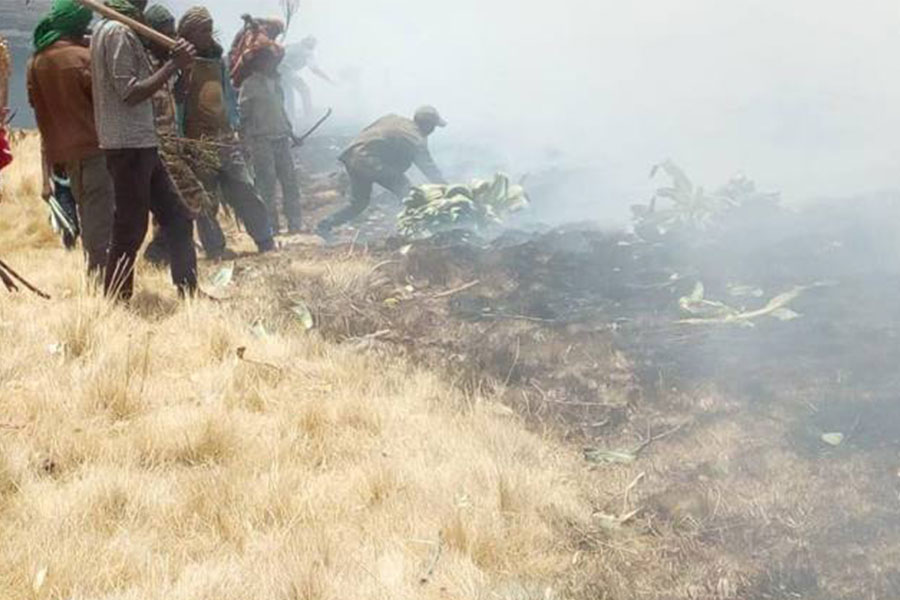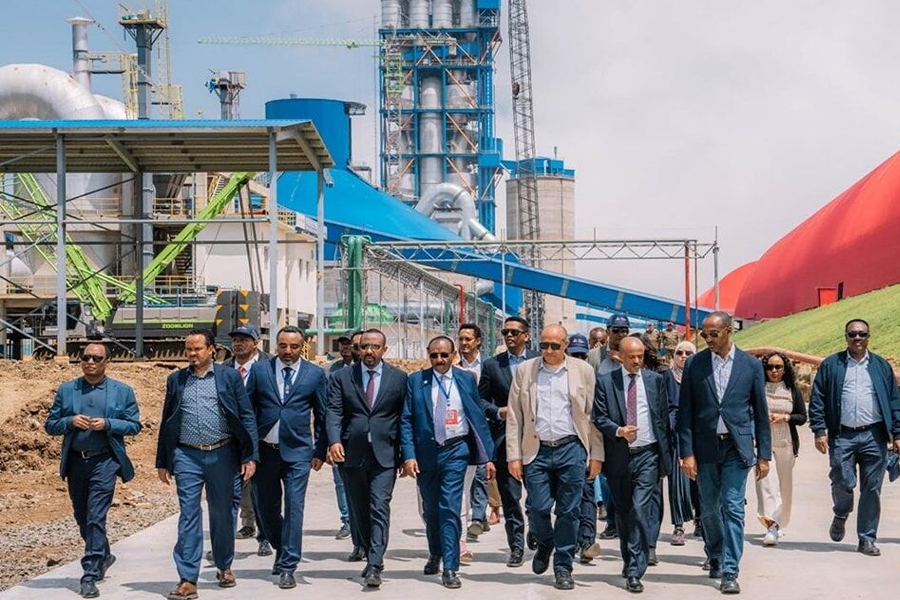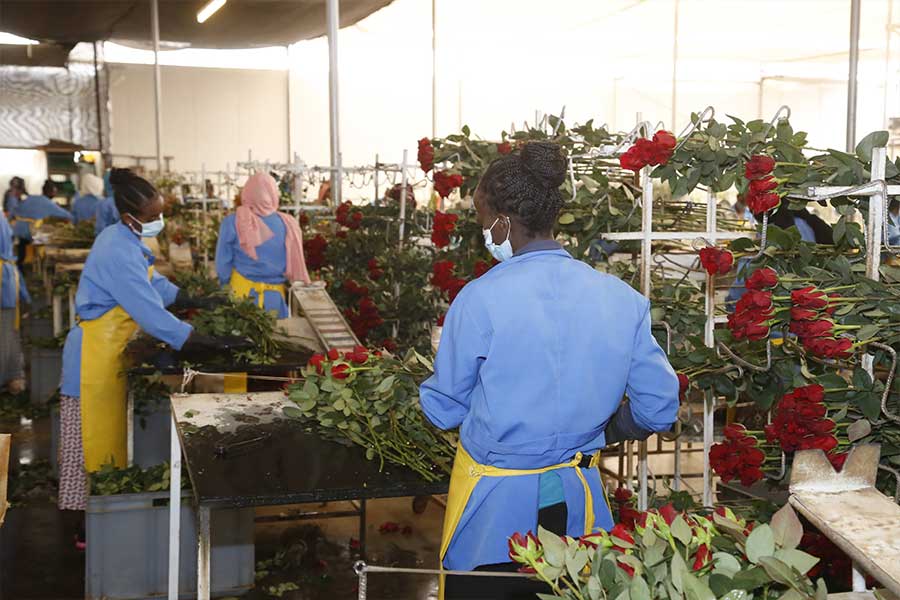
Radar | Sep 08,2024
One of Ethiopia's main tourist attractions began welcoming visitors last week, following two years of inactivity after tourists arrival plummeted due to a pandemic and militarized conflict. Semien Mountains National Park was shut down in March 2020 and briefly reopened last year. It had to close again with the civil war in the north reaching the area late last year.
Located in the North Gonder Zone of the Amhara Regional State, the Park was opened in 1968; it is a UNESCO World Heritage site beginning in 2017. The Semien Mountain's natural scenery has remained a popular tourist destination over the past five decades, consisting of high plateaus, steep cliffs and deep gorges. The Park is also home to several endemic species, including the Walia Ibex, Ethiopian Wolf and Gelada Baboon, and hosts Ras Dashen, the fourth highest peak in Africa at 4,550 metres.
The Park had witnessed robust growth in visitors and revenues generated in the decade leading to its closure. Over 38,000 sightseers visited two years ago, up from 17,500 a decade earlier. Revenues jumped over eight-fold during this period to 38 million Br. Entrance fees at 90 Br for foreign nationals and 20 Br for locals accounted for nearly a fifth of the total. Fees applied to filmmakers looking to take the Park's vistas contributed to the growth. Those who take aerial shots are required to pay 20,000 dollars for each day of filming while taking photos and recording films on the ground carries a 9,000 dollar daily fee.
The Park's reopening is welcome news to around 8,000 people who work as tourist guides, porters, cooks and park scouts in the area. Close to 20,000 households reside along the Park’s periphery.
Aweke Negash, 33, a father of two who depended on his work as a tourist guide, is among them. A farmer in his previous engagement, Aweke joined the tourism industry nearly a decade ago after completing a three-year tourism programme at a vocational school. He then moved to Debark, a town 90Km north of Gonder. Aweke says he was motivated to change, seeing the earning potential as a guide.
“I used to earn as much as 700 Br a day,” he told Fortune.
When the Park closed its doors, Aweke tried his hand at other jobs, including retailing cement. However, the money he generated has not been sufficient to meet his family's needs.
“The regional government promised to support us," said Aweke. "We haven't received any attention at all.”
The civil war raging in the north for over a year has had a negative impact on the Park and the tourism industry. According to official figures, close to 812,000 tourists visited Ethiopia in 2019, generating a reported 3.55 billion dollars. During the first nine months of last year, 331,000 tourists visited, generating a little over 1.5 billion dollars, these figures disclose.
"Many tour guides left the area after the closure," said Solomon Kidia, chairman of the Tourist Guides Association. “The remaining have been fighting in the war.”
Neither have other tourist attractions in the Amhara Regional State, such as Lalibela and Gonder, also inscribed as World Heritage sites, been immune to the consequences of militarised conflict.
According to Abraham Mareye, director of wildlife development & protection at the Amhara Environment, Forest & Wildlife Development & Protection, reviving tourist attractions in the regional state is crucial to recharging the country's tourism industry. He disclosed that three protected areas in the regional state sustained damage due to the war: Abune Yoseph and Guassa Menz community conversations and Borena Sayint Sanctuary.
“We've reported the damage to regional and federal authorities," he said.
Federal officials say they have heard the call. A full-scale damage assessment has been conducted, according to Seleshi Girma, a state minister for Tourism. A recovery plan for tourist sites has been prepared, though it is yet to be implemented, he disclosed.
"It's awaiting approval from the Council of Ministers," he said.
Very few people have been visiting Semien Mountains National Park since it reopened.
Aweke has decided to wait a few weeks to see if the tourist flow climbs back up. If not, he plans to move to Amba Ras, a town near the Park, and return to working as a farmer.
"It's better to labour on my farm instead of sitting idle," he told Fortune.
PUBLISHED ON
Jan 29,2022 [ VOL
22 , NO
1135]

Radar | Sep 08,2024

Fortune News | Apr 13,2019

Fortune News | Jun 08,2019

Fortune News | Apr 20,2019

Fortune News | May 15,2021

Radar | Sep 29,2024

Life Matters | Aug 14,2021

Agenda | Feb 13,2021

Fortune News | Dec 02,2023

Fortune News | Mar 30,2019

Dec 22 , 2024 . By TIZITA SHEWAFERAW
Charged with transforming colossal state-owned enterprises into modern and competitiv...

Aug 18 , 2024 . By AKSAH ITALO
Although predictable Yonas Zerihun's job in the ride-hailing service is not immune to...

Jul 28 , 2024 . By TIZITA SHEWAFERAW
Unhabitual, perhaps too many, Samuel Gebreyohannes, 38, used to occasionally enjoy a couple of beers at breakfast. However, he recently swit...

Jul 13 , 2024 . By AKSAH ITALO
Investors who rely on tractors, trucks, and field vehicles for commuting, transporting commodities, and f...

Jul 5 , 2025
Six years ago, Ethiopia was the darling of international liberal commentators. A year...

Jun 28 , 2025
Meseret Damtie, the assertive auditor general, has never been shy about naming names...

Jun 21 , 2025
A well-worn adage says, “Budget is not destiny, but it is direction.” Examining t...

Jun 14 , 2025
Yet again, the Horn of Africa is bracing for trouble. A region already frayed by wars...